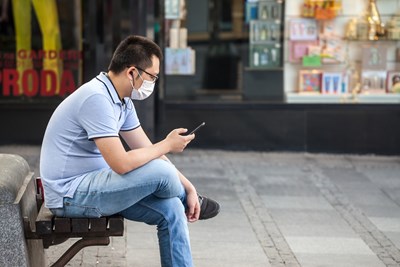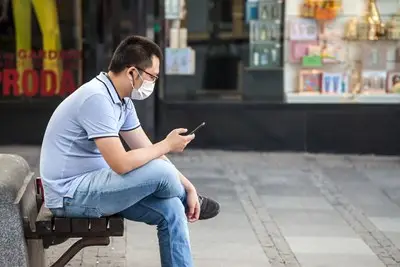EDITOR’S NOTE: Click here for a link to the official ERLC document.
WASHINGTON (BP) — Churches should partner with government officials to fight the spread of the coronavirus (COVID-19) while receiving First Amendment protections as they cooperate, the Southern Baptist Ethics & Religious Liberty Commission said in a new statement.

The ERLC issued a document July 10 that provides guidance to church and civic leaders regarding the effort to protect public health, particularly through the process known as contact tracing. In the procedure, trained workers contact people who may have been exposed to COVID-19 so those potentially infected individuals can isolate from others and thereby prevent the spread of the virus.
The ERLC’s “Statement of Principles of Church-Civic Partnership on Contact Tracing” was released as COVID-19 cases are increasing in many states after periods of decline. As of Monday (July 13), 135,400 deaths from COVID-19 and more than 3.33 million confirmed cases have been reported in the United States, according to Johns Hopkins University.
Most churches and other religious bodies have returned to in-person, corporate worship after abiding by government restrictions that prevented such gatherings during the first several weeks of the pandemic. The return to in-person meetings offers the potential for exposure to people with the virus even when churches implement such measures as social distancing and the wearing of masks.
“Contact tracing could be the next tension point between church leaders and civic leaders, but it doesn’t have to be so,” said Brent Leatherwood, a statement co-author and ERLC chief of staff. “We thought it was important to provide a framework for leaders in both spheres to consider how it could be done in a way that respects the roles and duties that church and state play in serving their communities during this crisis.”
Travis Wussow, a co-author and ERLC vice president for public policy, said, “We have consistently called for pastors and governors, church leaders and civic leaders, to view themselves as co-equal partners in confronting this pandemic. This statement of principles lays out a pathway that adheres to the First Amendment, encourages churches to play a helpful role in contact tracing and demonstrates that meeting this moment is a shared responsibility between church and state.”
The ERLC delivered the statement July 10 to the chief of staff for each state governor and to every Baptist state convention executive.
Acting as partners with government to fight the virus is a means for churches to follow the biblical directives to pursue the welfare of their cities and to practice love for neighbors, according to the ERLC statement. Church and civic leaders have “unique, complementary roles” in combating COVID-19, and pastors should initiate relationships with local officials to foster communication and the sharing of information, the ERLC said.
In the statement, Leatherwood and Wussow included these recommendations for consideration as churches and municipal governments seek to work together:
— Civic leaders should see churches as “essential institutions and helpful partners.” They should provide recommendations based on the most recent medical information, “not as directives that could run afoul of First Amendment freedoms or that could create the impression that the church is an extension of or subordinate to the state.”
— Government officials should respect religious liberty and the freedom to associate and assemble at all times. They “should not create personal records that individually identify the church or religious affiliation of individuals.”
— Open communication between churches and civil government is vital. Authorities should seek to communicate with church leaders if contact tracing shows virus transmission took place during a worship gathering. Public health officials need to act in a manner that respects the religious freedom of worshipers.
— Churches should fulfill their responsibility in halting the expansion of COVID-19 by following public health guidelines for church meetings. They also should institute effective communication practices in case of possible exposure during church meetings.
— Civic leaders should treat worship gatherings equitably with other meetings of “similar size and activity.” Contact tracing that gives exceptions to some businesses or activities but not churches would be an example “of treating houses of worship unequally from other similarly-situated entities.”
— Government authorities should be careful in releasing information about exposure to the virus, protecting the religious liberty and health information privacy rights of everyone in the process.
The document is the latest in a series of ERLC efforts to help churches continue to minister during the pandemic while guarding their religious freedom.
The statement is available at erlc.com/resource-library/articles/statement-of-principles-of-church-civic-partnership-on-contact-tracing/. Leatherwood and Wussow will discuss the statement on the next Capitol Conversations podcast, which will be posted at erlc.com.
This article was originally published by Baptist Press at bpnews.net

